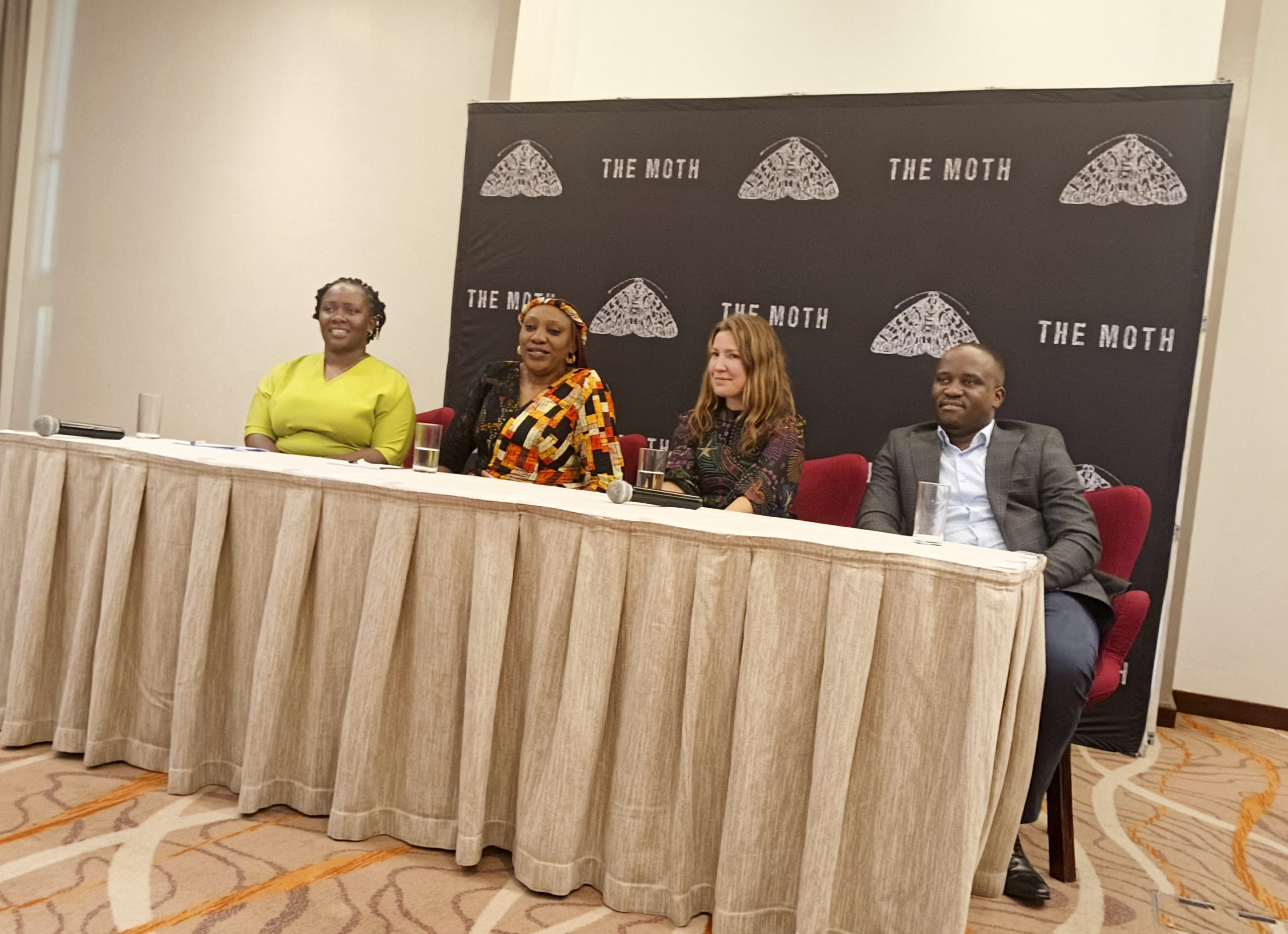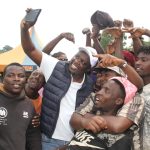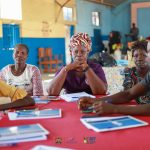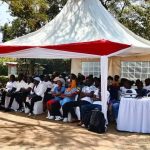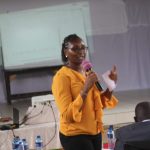African Storytellers Call for Authentic Narratives to Inspire Social Change.
By Peace Muthoka.
NAIROBI, Kenya — Storytellers and media practitioners from across Africa gathered today at Tamarind Hotel, Nairobi, for a powerful media roundtable exploring how personal stories can inspire empathy, shape policy, and drive social change across the continent.
The event, themed “Daring to Hope,” brought together storytellers, journalists, and advocates committed to amplifying authentic African voices in an era dominated by digital noise. It was organized as part of The Moth’s storytelling initiative, a global platform that equips individuals to use personal narratives as tools for transformation.
Key discussion themes included From Personal Pain to Policy Change, The Media’s Role in Authentic African Storytelling, Digital vs. Live Storytelling, The Cost of Truth-Telling, Training the Next Generation of Storytellers, and Storytelling as Power. Each segment underscored storytelling’s enduring role as Africa’s oldest wisdom tradition one that has carried memory, built community, and shaped identity for generations.
Sarah Austin Jenness, Executive Producer at The Moth, emphasized that storytelling remains one of the most powerful tools for human connection and reform. “The more personal a story is, the more universal it becomes,” she said. “Stories challenge dominant narratives, build empathy, and help people realize that the issues we face globally from gender equity to food security are not someone else’s problem. They are right here in our own backyards.”
Jenness shared examples of how stories have influenced real-world change. She cited Kenyan storyteller Roselyn Orwa, whose testimony at the United Nations in 2022 helped influence reforms on inheritance laws and protection for widows. “That story, told from a place of truth and courage, changed perceptions and laws,” she said.
Ugandan storyteller and change-maker Brian Turyabagye reflected on storytelling as a deeply personal and communal process. “When someone shares their story live, you connect with their fears, their triumphs, and their courage,” he said. “That connection is healing. It reminds people that they’re not alone and that transformation begins with being heard.”
Storyteller and Advocate Caroline Gamal added that empathy and ethics are central to authentic storytelling. “We must tell stories that heal, not harm,” she said. “When covering sensitive issues like gender-based violence or teenage pregnancy, journalists must ensure the story uplifts the subject rather than exploits their pain.”
Panelists also discussed how live storytelling creates deeper emotional engagement than social media content, where fleeting posts often lack context or empathy. “A live story lets people laugh with you, cry with you, and move with you,” said Turyabagye. “It’s not about clicks or likes it’s about connection.”
Participants agreed that digital platforms can still serve as powerful storytelling spaces when used responsibly. “Social media allows people to share real experiences and connect across distances,” said Gamal. “But it must be used to humanize, not sensationalize.”
The roundtable concluded with a call to action for African media houses and storytellers to train and mentor the next generation of storytellers, emphasizing both craft and integrity. Jenness noted that The Moth’s global storytelling program has trained over 800 storytellers in 30 countries, including several across Africa. “Each graduate uses storytelling to build understanding and create the world they want to see,” she said.
In reclaiming their own narratives, Africans are reclaiming their voice and shaping the future one story at a time.

